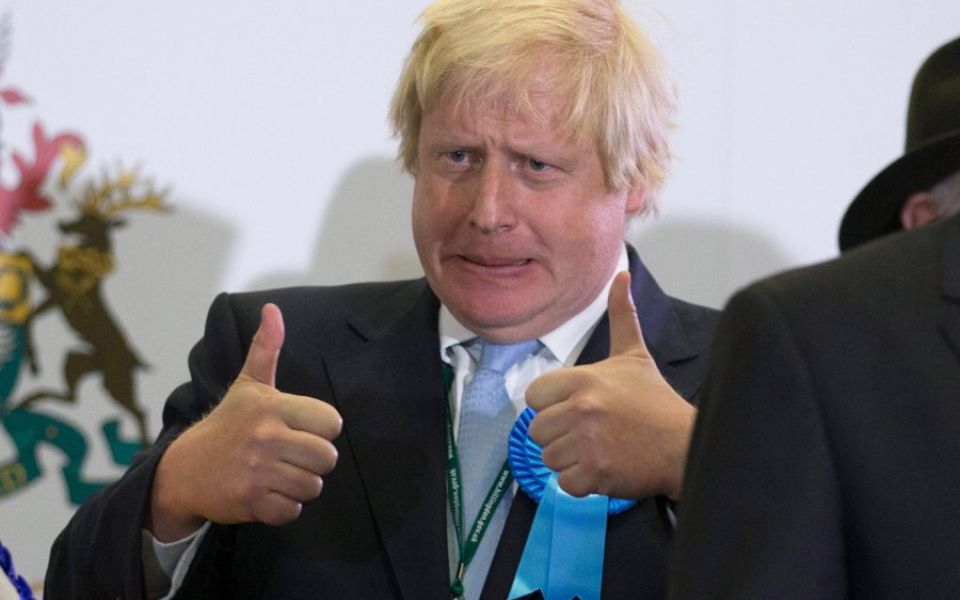Brand Boris: Johnson needs to shed his disrupter image if he wants to become a leader

There was a particularly pithy Tweet doing the rounds just after the Conservative party conference last week: “in summary: Boris’s speech not good enough for him to take over; May’s not bad enough to be kicked out”.
So, was Boris Johnson really just one speech away from leadership?
Possibly. Because Boris, just like Donald Trump, “has the best words”. That’s why he is worth £275k a year to The Daily Telegraph for his weekly column. That’s why he was so vital to the Leave victory in the referendum.
Read more: Boris Johnson savages Theresa May's Brexit plan
And that’s why it is a mistake for so many commentators to already be writing him off.
It’s true to say that the Boris vs. Theresa speech-off consolidated the dancing queen’s position in the short term. But let’s be honest, the Number 10 spin machine had to go into overdrive to ensure that this was the only possible outcome.
From an information operations perspective, Theresa May’s team effectively controlled the audience’s “pre-contemplation environment”. Every main hall speaker had clearly been three-line-whipped into using the phrase “unite behind the PM”.
This wasn’t by accident. Anyone who had exhibited “Chuck Chequers” tendencies would likely have been presented with another of those conference-P45s, although this time for real.
This careful preparation of the information environment ensured that Boris walked into a collective cognitive bias that was already set in favour of the status quo.
Number 10 was right to take such precautions with the Prime Minister’s speech, because Brand Boris is formidable, even in the face of such verbal headwinds.
Despite the odds, Boris drew the crowds and secured the cheers that other conference speakers could only dream of. He also offered practical policies when others defaulted to pandering and posturing.
Yes, May probably did enough to cling onto power by winning the fight before the battle – the famed Chinese military strategist Sun Tzu would be proud – but Boris showed that in a fair fight he would likely win – just as he did during the referendum.
And that may be the key issue that will determine the fate of Brand Boris: to what extent can the Prime Minister continue to use her advantage to load the dice?
She has the support of her predominantly soft-Brexit cabinet colleagues, and the veiled connivance of the EU spin machine. Boris is out in the cold.
So, to achieve his dream of becoming first among equals, he will have to pick his fights much more carefully and start thinking like a genuine “challenger” brand, rather than a “disrupter” brand.
In that way, he will avoid walking headlong into further preordained negative cognitive biases.
The disrupter image (as Boris was perceived at conference) comes at a high price: it requires the audience to accept upheaval.
A challenger, however, wears the clothes of the mainstream and appears less threatening. It seizes power more subtly with minimal disruption – and therefore minimal upset to the status quo.
Think of The Week news magazine. For all the world it is the same as a newspaper – journalists, printed paper, paid-for media – but it actually usurps your need to ever buy a newspaper again. Your rituals remain almost the same: you carry it with you, you flick through pages, you enjoy moments of being informed. And it therefore presents less of a risk than, say, getting your news from a citizen journalist, blog, or other disruptive news provider.
Brand Boris should take note. The former foreign secretary has evolved enough to stay in step with the fast-changing British public, while still maintaining his core brand equity (scruffy hair, use of archaic fancy words, bonhomie).
His path to the ultimate prize – to be the market leader as a brand and the literal leader in political terms – may rely on his ability to drop the disrupter tendency in favour of a more easily adoptable challenger persona.
This is not entirely what Boris may want to sell, but it is most likely what our frazzled, confused, and anxious pre-Brexit audience wants to buy: an easier transition to the next leader, a mitigated risk.
This final chameleonic transition would also likely secure the numbers he needs in Westminster to go forward to the ballot among Conservative party members.
One last brand evolution into Prime Minister Johnson is a real possibility. Only time will tell – but branding is everything.
Read more: Boris Johnson is 'irrelevant and offensive' says business guru Digby Jones